This article was published as a part of the Data Science Blogathon
“Somethings never change, their essence and contributions remain the same till date”.
Introduction
Through this line I am pointing out the millennia-old contribution of books in educating people; even to this date, we are heavily dependant on text, papers, books.
I was always a video lecture type of person, they seem less boring on to the point, but my opinion drastically changed once I discovered these books on Deep learning by these elite publishers. For the longest, I thought books are not a good option to study such complex mathematical and computer science concepts, but I am glad to be proven wrong by these books.
The books mentioned here are a few out of all; that I have gone through. They are my honest opinion to the best of my knowledge and some special books mentioned here are among the Industry’s Top books ever published on Deep learning that even Google and Facebook recommends them. You will get to know them once you read through the article.
1. Grokking Artificial Intelligence Algorithms by Rishal Hurbans published by Manning Publications
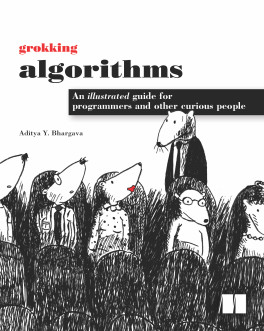
This book deals with the whole pathway from Classic A.I. that deals with Searching algorithms, intelligent search, and other things like these to more evolutionary part of A.I. that includes the later 21st-century popularized Machine learning, Deep Learning and Reinforcement Q- learning.
The curriculum includes these topics in sequence { Intuition of A.I., Search Fundamentals, Advanced Search, Evolutionary Algorithms, Swarm Intelligence: Ants, Swarm Intelligence: Particles, Machine learning, Artificial Neural Networks, Reinforcement with Q-Learning }. You will get to learn and establish the base of how and through what processes, today’s AI evolved.
I highly recommend this book to those, who are delving into AI for the first time and are really passionate to know about A.I.’s evolution, all its core aspects and not just a few famous algorithms of Machine learning or Deep Learning.
2. Deep Learning From Scratch: Building with Python from First Principles by Seth Weidman published by O`Reilley
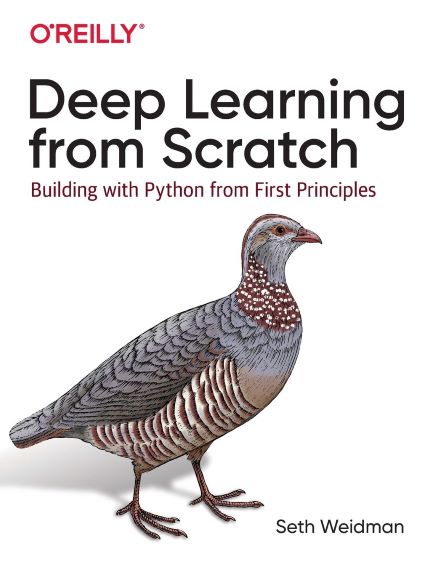
The book literally follows the concept mentioned in its name, which is Building from the First principles. The author clearly mentioned in this book that when we learn any computer science concept, let’s say “searching”, then to explain such a concept.
The most crucial elements to explain it properly would be
- An explanation of algorithm in plain English so that glossary becomes less of a confusing factor,
- Visual representation of the working of that algorithm to let the reader easily image the concept with more understanding,
- A mathematical explanation of “why the algorithms work”, and
- Pseudocode implementation of the algorithm.
This book gives its best in fulfilling all the above-mentioned roles for anyone with little background and consistency to learn deep learning. This not so thick book is pretty amazing.
3. Deep learning in Python/ Pytorch by Manning Publications
These books in particular are so popular and amazing that Pytorch recommends the PyTorch version of this book on their official site’s reading references and even made the “Deep learning with Pytorch” available to everyone for free.
They definitely are the most preferred books to start Deep learning and some hands-on as well. Let’s see what all the cover in their content:
3.1 Deep Learning with Python
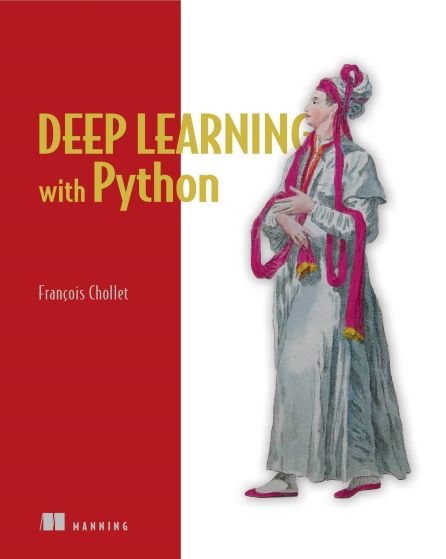
The book is divided into 2 parts: First (Fundamentals of Deep learning) where you will learn about the high-level and most crucial concepts of deep learning.
Second (Deep learning in Practise) where the book covers deep learning for computer vision, Text and sequences, Advanced deep-learning practice, generative Deep learning.
3.2 Deep Learning with PyTorch
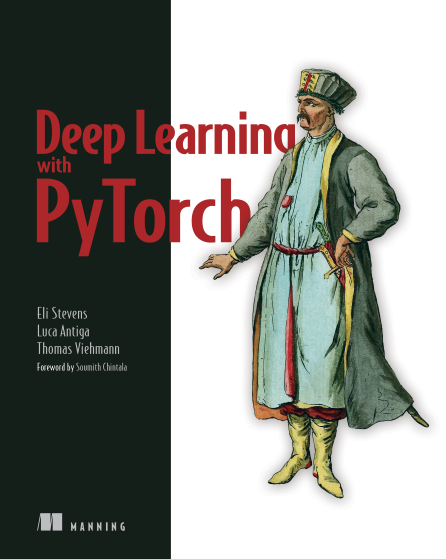
I have already told you how popular this book is, let’s look at its content. The book is divided into 3 parts:
Part 1 (Core PyTorch) where you will learn about Introduction to deep learning and PyTorch as a library, Pretrained models, Tensors and their applications and more.
Next comes Part 2 (Learning from Images in the Real-world) covers a real-life example of early detection of lung cancer and its complete development in detail which in my opinion adds so much perspective for a learner.
Part 3 (Deployment) talks about the last step of any ML application development for the first time, which is letting others use your model and make your model live in the real world.
4. Grokking Deep Learning by Andrew W. Trask published by Manning Publications
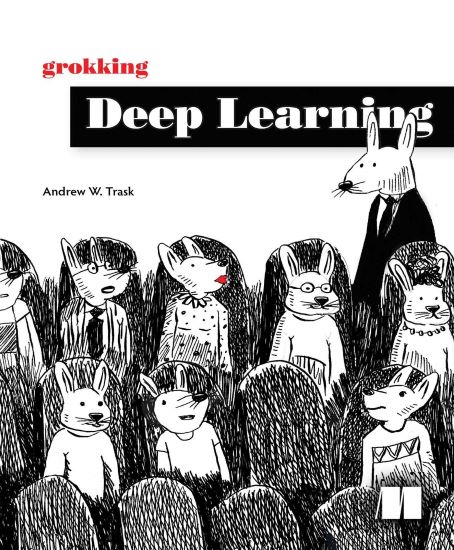
If you want to take my word for it, and asks me “Gargeya, where do you think I should start from ?” I would close my eyes and point you towards this book. A fantastic book on deep learning which even makes me feel why didn’t I start with this.
This book covers most of the topics that you would need to get your hands dirty with deep learning and walking a positive exponential slope towards knowledge and intuition.
This is a brief of what you will learn: {Intro to deep learning and why you should do it, Fundamental concepts, Intro to Neural network, gradient descent in detail, visualizing neural networks, backpropagation and Learning concept, batching and regularization, Recurrent networks for text data, LSTMs and at last federated learning}. Trust me if this is not enough to start then most of the things are not.
5. Hands-on machine learning with Scikit-learn Keras and TensorFlow by Aurelion Geron published by O` Reilley
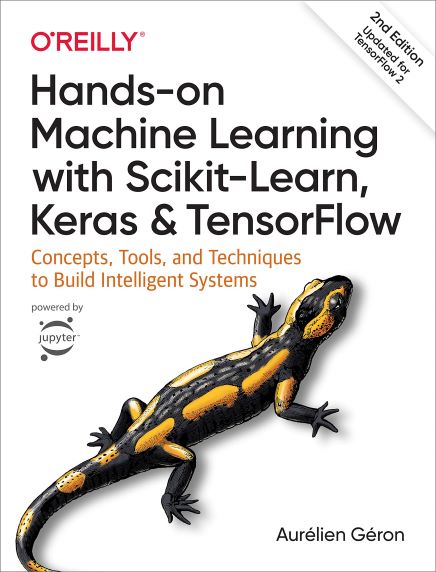
After you are done with Basic statistics, Machine learning and Deep learning. Now you wanna up your game with practical implementations and making a full-fledged Deep learning model in TensorFlow. This is the book that not only me but Tensorflow itself suggests.
Personally, I am following this book constantly and in terms of deep learning with TensorFlow, this is my best book. The way the author has explained the concepts is exceptionally easy and intuitive. It made me feel more powerful every time I was done with a certain section.
The book is a treasure of knowledge with more than 800+ pages on topics: {Fundamentals, End-to-End ML project, Detailed most common Machine learning algorithms and techniques, Neural Network with Keras, Custom models and training with Tensorflow, Deep computer vision with convolutions, Sequence models with RNNs and LSTMs, Attention models, Generative learning like Autoencoders and GANs, Reinforcement Learning}.
Learning and working parallelly with this book will completely change your skill level in Machine learning and Deep learning in practice. You should definitely try it.
6. Deep Learning by Ian Goodfellow, Yoshua Bengio and Aaron Courville published by MIT Press
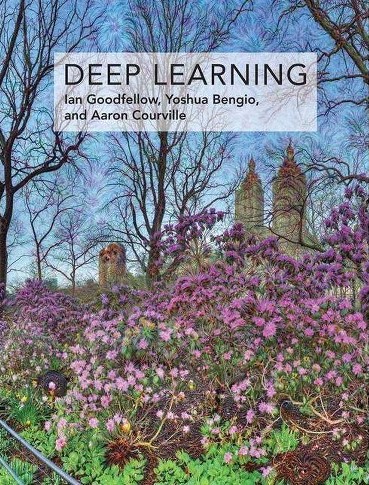
Let me get some facts straight, the authors of this book include the pioneers of deep learning, Yoshua Bengio one of the three godfathers of deep learning, Ian Goodfellow popular of this creation of Generative adversarial Networks (GANs).
This book is a legend among all the books on deep learning. The book not just only tells about the concepts of deep learning, it first brushes your knowledge and concepts of applied maths(Linear Algebra, Probability and Information Theory, Numerical Computations) and machine learning basics in terms of maths (The lowest building blocks of A.I.).
Once you have gone through Part 1, then comes Part 2 – detailed study on Deep learning: Modern practices (Deep Feedforward network, Regularization, Optimization, Convolutional Networks, Sequence Modeling, Applications).
After really digging in all these concepts and creating hardcore logic and intuition about deep learning, comes Part 3 (Deep learning Research) which includes some of the most popular topics of research in deep learning like (Probabilistic PCA and Factor Analysis, Autoencoders, Structured Probabilistic Models for Deep Learning, Monte Carlo methods, Deep Generative Models and whatnot).
I would not suggest this book to everyone, but to those who are particularly focusing on deep learning and willing to work really hard through all the maths and not deviate from deep learning.
7. Deep Learning for coders with fastai and PyTorch by Jeremy Howard & Sylvain Gugger published by O`Reilley
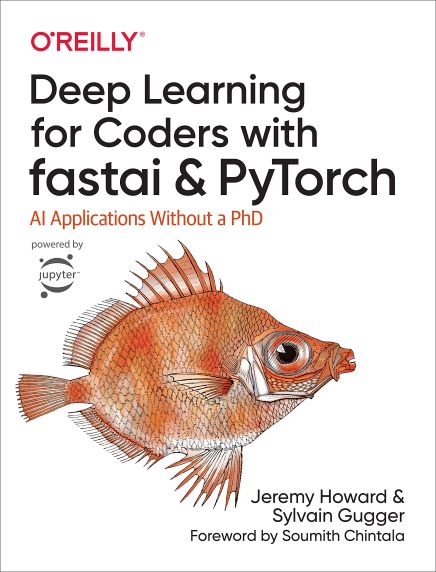
Saving the best full package resource for the end. This book is definitely among my top-3 favourite books, absolutely beautiful not just in terms of deep learning but all other very important factors that are related to deep learning in practice like Model to production, Data ethics and Your deep learning journey (a map to follow). These three things are really really important if you are hoping to become a deep learning engineer or something even remotely similar to it in practice.
Backed by the whole website fast.ai to teach people deep learning from scratch for free with complete video tutorials, Labs on paperspace’s deep learning environment, introduction to a very powerful library for deep learning in PyTorch i.e. fastai. The book is enough detailed with so much practical content that you are definitely gonna learn something new after every single read.
Let me give you a glimpse of what you will see inside this book {fastai’s applications which includes Image classification, training state-of-the-art models, collaborative filtering deep dive, tabular modelling, NLP deep dive, then further there comes Language model from scratch, CNNs architecture like ResNets and all other very essential Deep learning architectures from scratch} I extremely recommend this to people interested in deep learning.
That’s it for this article, I hope you now waste less of your time wandering and getting confused and get started with any of the books that charmed you the most. Keep Growing my fellow A.I. community members.
Gargeya Sharma
B. Tech Computer Science 3rd Year
Specialized in Data Science and Deep learning
Data Scientist Intern at Upswing Cognitive Hospitality Solutions
For more info check out my Github Home Page
Photo by Jakob Boman on Unsplash
The media shown in this article are not owned by Analytics Vidhya and is used at the Author’s discretion.




